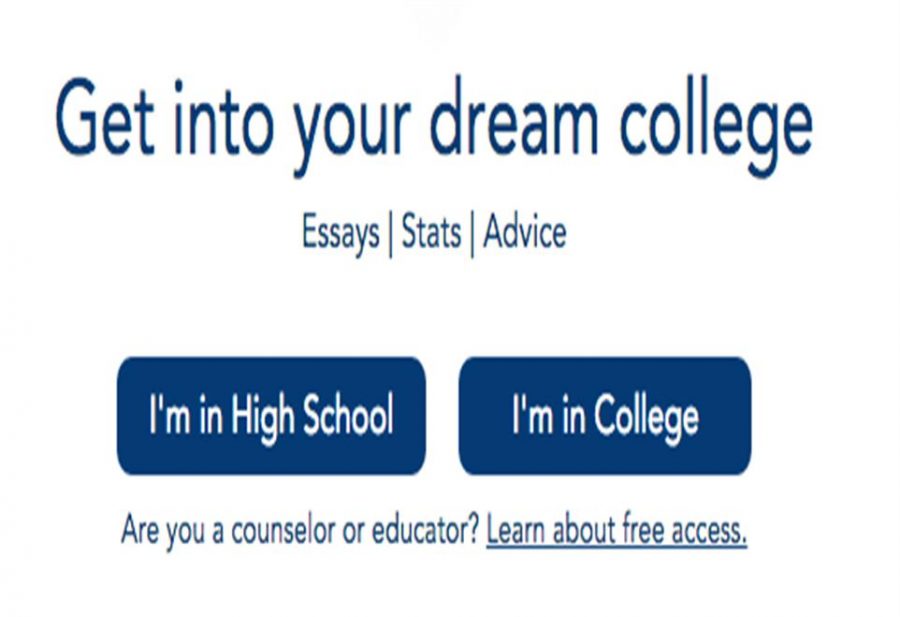or seniors, November is a time when the stress really piles on: Classes get harder and college application deadlines get closer. The window to improve our grades gets shorter, and we become more unsure of yourself. At that point, we might start looking for a source of validation. I know I definitely have. That might come in the

form of comparing “stats” with peers — grade point average, standardized test scores, extracurriculars list — in an attempt to gauge our chances of getting into certain schools. But sometimes, that validation might come from companies that are looking to make some money. I was recently scrolling through my Facebook newsfeed as usual, and noticed this ad.
I’ve seen multiple advertisements for sketchy college admissions websites in the past, but I’ve actually heard of AdmitSee before. That’s when I realized that there was a widely circulated article by TechCrunch about the website. AdmitSee must be legit, I thought to myself. Having a few college applications I was unsure of myself, I decided to check out what AdmitSee was offering.
AdmitSee has three basic functions:

- See where students with similar stats were accepted.
- View the full applications of students, including their essays.
- College students who get paid by AdmitSee can serve as your mentors and edit your essays.
Of course, these services come at a cost:

At a vulnerable time like this, I’m tempted to ask my parents for their credit card and purchase one of the rather pricey packages AdmitSee offers, but in reality, there’s a free alternative to each one of their services.
Although it doesn’t take essays into account, seeing accepted applicants’ GPAs and standardized test scores can be a valuable tool, especially when choosing what schools to apply to. Yes, AdmitSee does provide this. However, I realized that so does Naviance, a free and valuable resource that all MVHS students have access to. Naviance gives access to the GPAs and and standardized test scores of all applicants from MVHS to specific schools. Here is UC Davis’ chart:

One of the more tempting functions of AdmitSee is having access to applicants’ essays. Although the essay writing process is an individual one, it can sometimes be helpful to read some from previous applicants while taking note of style, writing techniques, and the level of specificity. What I don’t understand is paying money to read these essays when most universities post them for free on their websites. Remember the “essays that worked” section on most college websites? I know I do (I read them pretty religiously).
Not only do many colleges post these essays, but their college admissions teams often leave commentary and useful analysis on what makes for a good essay.

Last but not least, AdmitSee’s third service is allowing university students to mentor you and provide feedback on your essays. I find this sort of misleading. You’re not an expert on how to get students into Harvard just because you got into Harvard. No applicant can pinpoint why they got accepted, nor do they have the experience to act as a college admissions counselor. Let’s not forget that we have guidance counselors who have years of experience on campus. And guess what? They offer their much more solid services for free.
It’s not just AdmitSee, there are plenty of college admissions websites out there. Getting some help during the application process can make a difference for many of us, but be wary of websites that prey on both the insecurities of competitive high school students and their parents’ wallets.








